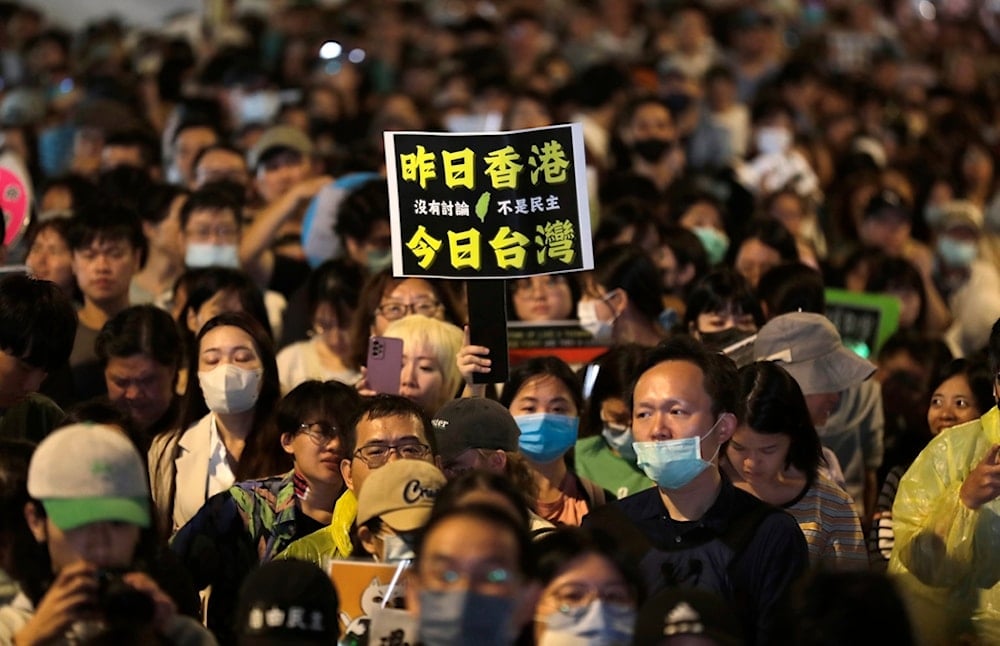Taiwan’s ruling DPP launches campaign targeting KMT Lawmakers
Taiwan's ruling DPP begins a recall campaign against KMT lawmakers, accusing them of aiding China to paralyze the legislature ahead of key July and August votes.
-

Supporters of the ruling Democratic Progressive Party (DPP) outside of the legislative building in Taipei, Taiwan, Tuesday, May 28, 2024 (AP)
Taiwan’s ruling Democratic Progressive Party (DPP) kicked off a high-profile, island-wide campaign Friday targeting opposition lawmakers for recall, escalating political tensions ahead of key votes scheduled for July 26 and August 23, according to Focus Taiwan.
The 16-day campaign, a hybrid of foot marches and motorcades was launched from the eastern county of Hualien and is aimed at mobilizing public support for recalling 26 legislators from the main opposition Kuomintang (KMT) party. The move reflects growing friction within Taiwan’s legislature, currently controlled by opposition forces.
DPP Secretary-General Lin Yu-chang and prominent tech billionaire-turned-political donor Robert Tsao are spearheading the initiative. Speaking to local media, Tsao accused the KMT of working in tandem with Beijing to "paralyze" Taiwan's democracy by obstructing legislative processes through the Legislative Yuan, the island’s unicameral parliament.
“Their collaboration with China is not just political sabotage, it is a threat to our national sovereignty,” Tsao alleged, further intensifying the rhetoric around national security and cross-strait tensions.
KMT denounces DPP crackdown
The KMT, however, has hit back hard, with its Hualien chapter denouncing the campaign as a politically motivated crackdown. In an official statement, the party described the DPP’s actions as an attempt “to purge the opposition and silence dissent.”
The recall drive has also put pressure on the island’s leader, President William Lai Ching-te of the DPP, who has been accused by critics of orchestrating a broader campaign to weaken his rivals and consolidate power. Opposition figures warn that such tactics risk undermining Taiwan's democratic principles.
The ongoing dispute reflects deeper political divides over Taiwan’s future direction, particularly in relation to its stance on cross-strait relations with China. While the DPP maintains a firm position on Taiwan’s self-governance and distancing from Beijing, the KMT has historically favored closer economic ties with the mainland.
Top officials caught spying for China
Taiwanese authorities indicted in June two former government aides, including one closely tied to President Lai Ching-te, over allegations of leaking classified national security information to China.
The charges mark a significant development in a growing espionage threat facing the island amid rising cross-strait tensions.
The Taipei District Prosecutors' Office announced on Tuesday that a former aide from President Lai’s office and a secretary who previously worked with former Foreign Minister Joseph Wu were formally charged under the Classified National Security Information Protection Act.
Both individuals are Taiwanese nationals. Prosecutors are seeking prison sentences of at least five and nine years, respectively.

 3 Min Read
3 Min Read










